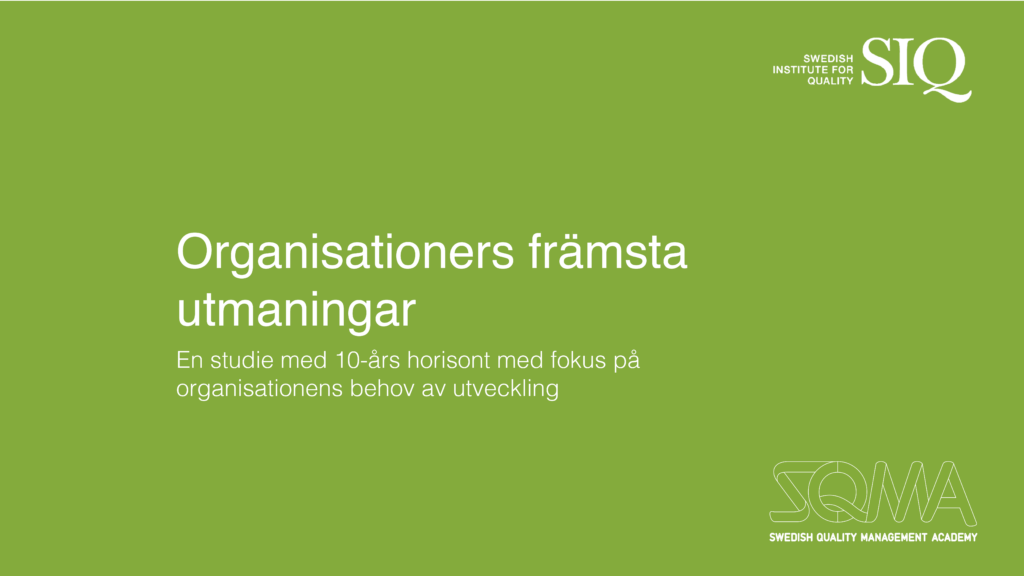Att navigera i en föränderlig värld
Kommentarer inaktiverade för Att navigera i en föränderlig världArtikeln “Change-driven process management: exploring a new process paradigm adaptable to societal changes” publicerades nyligen och finns tillgänglig open access: https://lnkd.in/dnaHbcVj
Denna forskning, publicerad i Business Process Management Journal, bygger på en studie genomförd i nära samverkan med SIQ’s medlemmar inom näringsliv och offentlig sektor. Studien inkluderade även deltagare från Sverige, Frankrike och Tyskland och representerade branscher som fordonsindustrin, energisektorn, medicinteknik, hälso- och sjukvård, telekom och socialtjänst
Det är tack vare värdefull samverkan som gjort denna studie möjlig och det är samtidigt glädjande att se att nya insikter redan kommer till användning i flera verksamheter. Resultatet ger ett beslutsstöd i utvecklingen av en mer tillitsbaserad processledning där både innovations- och förändringsdriven processledning ger ytterligare kraft i det arbetet.
“Tillsammans med mina medförfattare – Peter Cronemyr vid Linköpings universitet och Lars Wemme, tidigare projektledare vid SIQ – är vi tacksamma för den värdefulla samverkan som gjort denna studie möjlig och det är samtidigt glädjande att se att nya insikter redan kommer till användning i flera verksamheter”, säger Anders Fundin, Forskningsledare vid SIQ.
Resultatet ger ett beslutsstöd i utvecklingen av en mer förändringsdriven processledning där både tillitsbaserad och innovationsdriven processledning ger ytterligare kraft i det arbetet.
